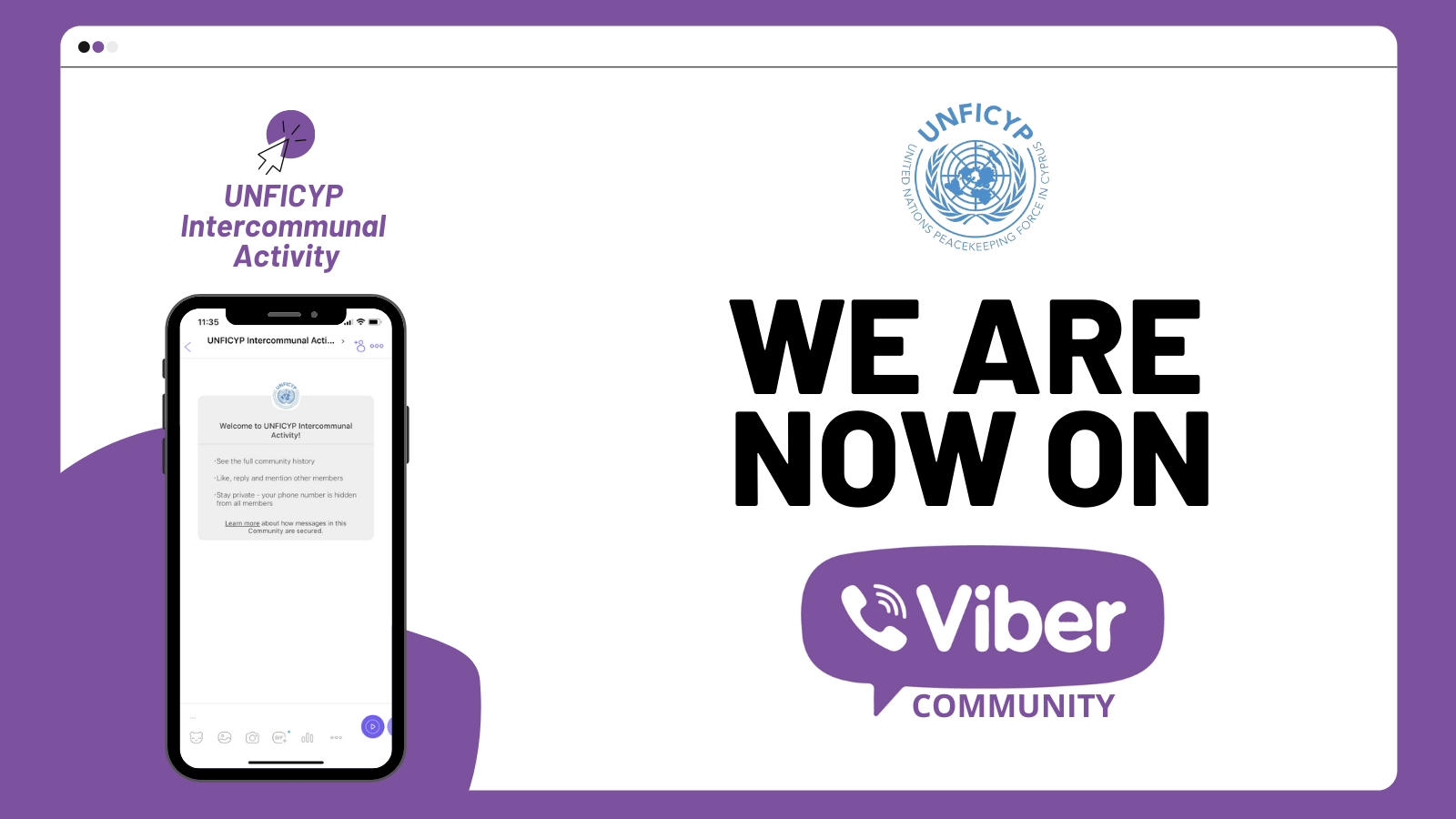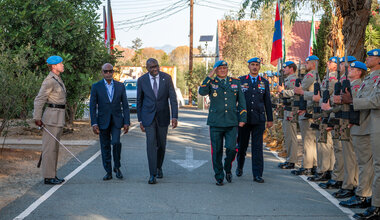Transcript of media stakeout by SASG Espen Barth Eide & SRSG Elizabeth Spehar following UNSC briefing
SASG Eide: Good afternoon. We’ve had a thorough and very constructive meeting with the United Nations Security Council, both on the UNFICYP Mission, under the auspices of the Special Representative, Ms. Spehar, and on the Good Offices Mission, which I lead. The Council expressed strong support – every one of the 15 members once again said they recognise the effort that is made by the leaders; they give strong support to the process and the way the process is organised, and they also give strong support to how the UN Mission is working.
We shared with them that over the last weeks and months there have been significant developments in the talks, and it’s clear that maybe the old format of negotiations has largely come to an end and the two leaders are now taking personal charge of all issues. In a week from now, we will at least have had preliminary discussions also on issues which have not been touched upon, including territory, security and guarantees. Then there will be a short break and then we believe the leaders sincerely want to make the most out of August and September until again there is a meeting here, this time in the UN General Assembly.
Events in the neighbourhood over the last weeks have illustrated a crucial point, which is that the window for a solution in Cyprus remains open, but it will definitely not remain open forever. It is very important – and I echo here what practically all members of the Council said – that even more than ever before, there is really a need to grasp this chance to negotiate sincerely, negotiate creatively and to seek to find solutions that can be beneficial to both communities and to a united Cyprus altogether. We think it’s within the reach of the possible that the leaders actually fulfil their own stated ambition, which they stated on the 15th of May 2016 on the anniversary of their talks, where they said they will work with determination to intend to find a settlement in 2016. We, the UN, do not have a separate timeline, but the leaders themselves have been clearer than before and that makes it somewhat easier to organise the coming weeks and months.
One of the things that the Council also expressed strong views on is the need to plan for the actual implementation of a settlement, because given that we have new convergences and new agreements developing relatively quickly now, we may one day wake up and see that it is actually there, there is a settlement. But at the same time I think it would be very unfortunate if we hadn’t done the practical planning early. My view is that to do contingency planning is not to suggest that the contingency plan will be implemented, it’s rather to have done due diligence in making concrete preparation for implementing those agreements that they are currently discussing, and here, I think the Council would like to see even more progress on these aspects of planning. I will now leave the podium for Elizabeth Spehar.
SRSG Spehar: Thank you very much. Yes, it was, I think, a very good Council meeting; it was my first as SRSG for UNFICYP and I was very pleased to be warmly welcomed to the Council. Very strong support first of all for the leaders in Cyprus and for the leader-led negotiation process – that was very clear from all of the interventions made by the Council members – as well as support for the work of UNFICYP and its role in peace and security in maintaining calm in the buffer zone, as well as its support to the Good Offices process and to confidence-building measures. Also good support and great interest in the work of the Good Offices as well.
As the Special Adviser was saying, the Council was definitely interested in the issue of planning for an eventual settlement should the leaders come to an agreement; we explained that we’ve been doing some initial thinking and planning within the secretariat and within the two missions, but of course, further work will have to be guided by progress in the negotiations and what the two sides will ask the United Nations to do in support of an eventual settlement. Hopefully this issue of the contours of a settlement and possible means of implementation will be something that the leaders will continue to make good progress on in the coming period, so that in complementarity the United Nations can also start to plan in more detail for providing eventual support.
There was a particularly strong show of support for the work of the Committee on Missing Persons, and an interest to see that work progress even more quickly, I acknowledged that we also very much believe in the vital work of the CMP both as an essential humanitarian task and something that helps to bring families of the missing a certain measure of peace and hopefully some closure. But also, it’s been one of the longstanding, very important confidence-building measures between the two communities over the years. So I did express our ongoing support to the work of the CMP and the fact that indeed, work is ongoing to try to help them to do even more and make more progress as time goes on, because we realise that this is also a very time-bound issue – the family members are getting older, people who may have information are getting progressively older, so time is certainly of the essence also on that particular issue.
There was also a great deal of interest in demining, and I mentioned in my briefing that we now have a small United Nations Mine Action Service cell within UNFICYP that was just set up very recently, and that they will be able to support both UNFICYP and also the two sides, if they wish, in further demining endeavours, and we hope that we’re all going to be working towards a mine-free Cyprus. Thank you very much.
Q: You mentioned ‘events in the neighbourhood’. I want to just ask you directly – what impact, if any, do you think the attempted coup in Turkey and decisions by the Turkish Cypriot side on the ‘Gulenists’ may/will have on your process?
SASG Eide: I will repeat what I said last week in Cyprus, that I was very worried the night of the attempted coup. The Secretary-General has expressed that interference of the military in the political affairs of any state is unacceptable, but he’s also underlined the importance to stay within the principles of law and order and democratic rule, and there are definitely developments in Turkey that were watching very closely. As of now, and I can only say as of now, there seems to be no change in the Turkish position, which is that they would like to see this solved. But I also said, initially here, I also said to the Council that these developments remind us that the window that is currently open may not be open forever, and I think also that Greek Cypriots and Turkish Cypriots are well-advised, as their leaders say, to find a solution now, because the continuity of the current way of life on both sides of Cyprus is more likely to be ensured by a settlement than by the opposite, and that is in the interest of both communities. Thank you very much. *This is not an official transcript.
 UN
UN United Nations Peacekeeping
United Nations Peacekeeping






